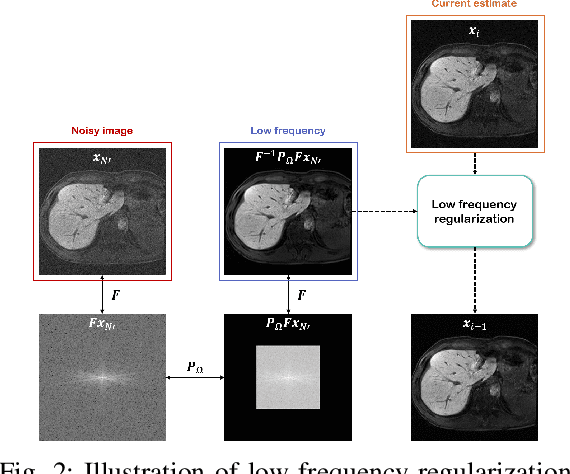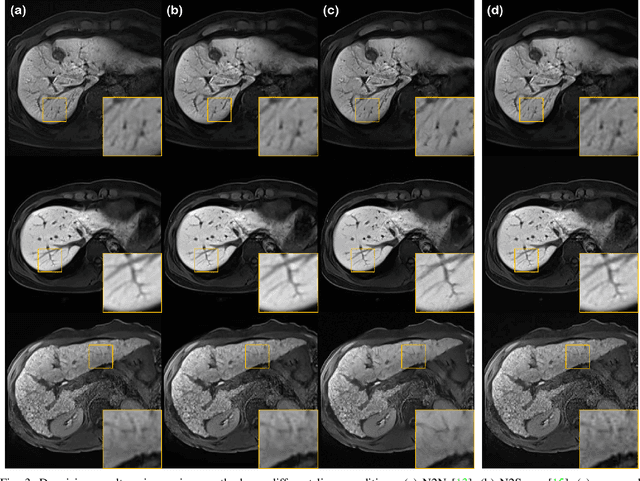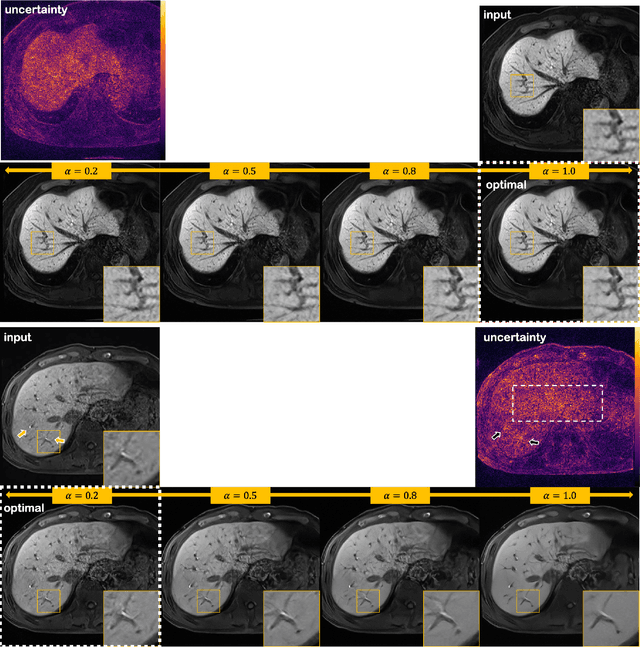MR Image Denoising and Super-Resolution Using Regularized Reverse Diffusion
Paper and Code
Mar 23, 2022



Patient scans from MRI often suffer from noise, which hampers the diagnostic capability of such images. As a method to mitigate such artifact, denoising is largely studied both within the medical imaging community and beyond the community as a general subject. However, recent deep neural network-based approaches mostly rely on the minimum mean squared error (MMSE) estimates, which tend to produce a blurred output. Moreover, such models suffer when deployed in real-world sitautions: out-of-distribution data, and complex noise distributions that deviate from the usual parametric noise models. In this work, we propose a new denoising method based on score-based reverse diffusion sampling, which overcomes all the aforementioned drawbacks. Our network, trained only with coronal knee scans, excels even on out-of-distribution in vivo liver MRI data, contaminated with complex mixture of noise. Even more, we propose a method to enhance the resolution of the denoised image with the same network. With extensive experiments, we show that our method establishes state-of-the-art performance, while having desirable properties which prior MMSE denoisers did not have: flexibly choosing the extent of denoising, and quantifying uncertainty.
 Add to Chrome
Add to Chrome Add to Firefox
Add to Firefox Add to Edge
Add to Edge